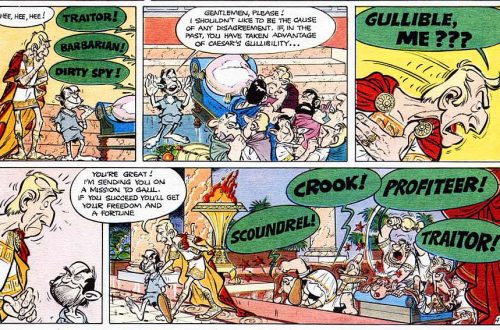Forgive me, I know this topic is always upsetting for people, but I can’t help but feel that in the sudden rash of articles about Muslims in Britain (we have now reached the point where a Martin Amis comment about Muslims to an audience at the Cheltenham Festival of Literature, is deemed worthy of being the third top story on the Independent’s website), that we are getting another lesson in just how out of touch the London media is with life in Britain.
As someone who grew up in a Lancashire town with a large Muslim community, mostly of Pakistani origin, it does seem odd that the entire media and political elite has now decided that there is a problem with lack of integration in communities and that there are some issues to be debated about the role of religion in hindering such integration. Incredible as it may seem to those setting the agenda, people across Britain have been talking about these issues, amongst themselves, for a couple of decades now.
They’ve been talking amongst themselves because the ‘national’ media in London either didn’t realise there were issues or decided that such provincial concerns weren’t worth bothering with or that we were all a bunch of backward racists anyway. The result was not only that the media failed in their job – to inform the nationwide public about major matters of concern – but that their blindness made it very difficult to have the necessary arguments inside those ignored communities.
If you tried to have political discussions about the failure of integration, the negative influence of religion, the oppression of Muslim women, the self-defeating nature of ‘official’ anti-racist multiculturalism, in, say, Lancashire in the 1980’s you quickly learnt just how much the terms of debate had been set by those who celebrated the diversity of the capital while ignoring the growing problems of largely bi-cultural communities outside London.
I’m not interested in going into the debate about the failures of multiculturalism again here, we’ve had plenty of discussions on the topic, but will anyone in the London media learn the lesson from their failure on this issue?
I’m not optimistic. Every single national newspaper in Britain has it’s editors and main staff at headquarters in London. Every single television channel has it’s news operations run from London by people who live in London. The vast majority of national media journalists live and work in London. If you are a decent journalist from the North who wants to enjoy a successful career you know that means you will have to move to London eventually – those who, for various reasons, choose to stay in the North have to accept that they will always be paid a fraction of what their collegues in the capital earn and will never receive the same recognition and are condemned to work at underfunded outlets which despite their local title and focus are often controlled by London based companies.
To most people this seems perfectly normal but it really isn’t. Take two of the biggest media markets in the world -the USA and Germany. American and German newspapers and television stations are spread out across the country. There is no way that Germans or Americans would accept their main media being produced entirely by people living in Washington or Berlin.
Of course there are a number of explanations for the differences between German and American media and the centralised British model but I would suggest the fact that both the US and Germany are federal republics is a pretty major one.
Coverage of local politics and local business in city or regional papers in the UK reflects the lack of importance and status of those activities. Business or economic coverage in English local papers usually focuses on ‘300 jobs lost’ or ‘300 new jobs’ – the decisions are taken elsewhere, only the effect is reported. The same with political reporting which inevitably reflects the weakness of regional and local government in the British system. If you are covering politics or business in Bavaria or LA, you have something much more meaty to work with.
The British media reflects the political arrangements of the Kingdom – if we want a media which more accurately reflects the realities of the communities throughout the nation then we need, ultimately, to ask whether it really is the best arrangement for so much power and wealth to be concentrated in one city in the south of England?


